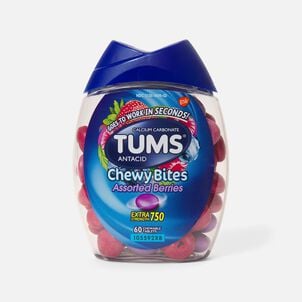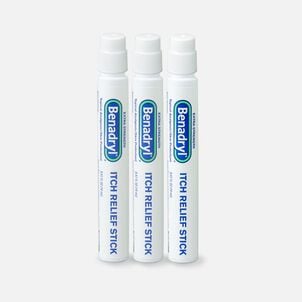Whether you're single, married, or have a growing family, healthcare may be a large chunk of your budget every year, and it can be particularly costly with a high-deductible health insurance plan. Fortunately, there are a couple of tax-friendly accounts, health savings accounts (HSAs) and flexible spending accounts (FSAs) that can make medical expenses more affordable. These accounts offer several tax breaks for account holders, and you may be looking to leverage all of them. But can you have an HSA and FSA at the same time? Our guide covers everything you will need to know.
What to know about a health savings account (HSA)
Health savings accounts (HSAs) allow you to use pre-tax money for qualified medical expenses. Here's a quick rundown of HSA benefits and how to qualify for one of these tax-savvy accounts.
Health savings account benefits
Health savings accounts are among the most tax-friendly places to keep your money. These accounts offer three tax breaks, which may offset some of your out-of-pocket medical expenses. Your tax benefits may include (IRS):
- Deduct your HSA contributions - You can deduct your HSA contributions on your taxes, whether you itemize or not, and your employer's HSA contributions aren't taxable income.
- Tax-free HSA earnings - If your provider allows you to invest your HSA funds, you won't pay taxes on your earnings.
- Tax-free HSA withdrawals - You can make HSA withdrawals anytime for qualified medical expenses, and you won't owe taxes or penalties.
In addition to the three tax benefits, your health savings account is also flexible. The account is yours, even when you leave your job, and there is no "use-it-or-lose-it" rule; there is no deadline to spend your balance.
How to qualify
One of the big downsides of an HSA is the strict eligibility rules. To make contributions, you must be enrolled in an eligible high-deductible health plan (HDHP). Below are the 2022 HDHP limits for HSA eligibility:
| Single Coverage | Family Coverage | |
| Minimum Deductible | $1,400 | $2,800 |
| Maximum deductible and out-of-pocket expenses | $7,050 | $14,100 |
Some other eligibility rules to know: Your health insurance must qualify for every month you make HSA contributions. You can't have another health insurance plan, either, including Medicare.
What to know about a flexible spending account (FSA)
Another tax-friendly option, flexible spending accounts (FSAs), are also a way to use your pre-tax money for certain medical expenses. There are two primary types of flexible spending accounts: a healthcare FSA and a dependent care FSA (DCFSA). We will focus on the healthcare FSA in this section. Here's a breakdown of the benefits of a healthcare FSA and what you need to qualify.
Flexible spending account benefits
Flexible spending accounts also offer tax breaks that can make some out-of-pocket medical expenses more affordable. These tax benefits may include (IRS):
- Non-taxable income - You won't owe taxes on flexible spending account contributions from you or your employer.
- Pay for medical expenses now - Typically, the full amount of selected funds for the year will be available on day one of the plan year and you do not have to wait to accrue funds
- Tax-free withdrawals - You can spend the money from your flexible spending account on qualified medical expenses without paying taxes or penalties.
How to qualify
You must be eligible for a group medical plan under your employer to qualify for a healthcare FSA. Self-employed workers aren't eligible.
Here's how the funding works: At the start of your plan year, you pick what to set aside from every paycheck, known as a salary reduction. That money goes into your FSA every pay period, and you can spend it throughout the year on eligible medical expenses. For 2021, you can contribute up to $2,750 through your FSA salary reduction.
There are some differences between an FSA and an HSA. For starters, your FSA funds aren't portable, and you can't take the money with you when you change jobs.
You also have a deadline to spend the money from your FSA account. This account has a strict "use-it-or-lose-it" policy, and you typically have until the end of the plan year. There are a couple of exceptions, though. Some plans may allow you to carry up to $570 into the next plan year, and others may offer a grace period of 2.5 months in which to spend remaining funds. However, an employer cannot offer a carryover and a grace period at the same time. You can check with your provider for your plan rules (IRS).
FSA vs. HSA: Which is better?
If you have an eligible health plan and qualify for an HSA, you may be better off putting your money there for a couple of reasons.
- Your HSA offers more flexibility. You can take the funds from job-to-job, and there is no deadline to spend the balance.
- Your HSA may provide long-term growth potential. With portability and no annual deadline to spend the money, you may invest and grow your balance for future medical expenses.
While an HSA may be the better pick, you may not have the ability to choose. Without an eligible high deductible health plan, your employer may not offer an HSA. But you may still have access to an FSA at work.
If your employer offers an FSA, you can still score a tax break on eligible medical expenses. But you will have to make a plan for your contributions, as funds expire at the end of the year for most plans, and the money will be forfeited back to your employer. (If you find yourself in a pinch, our website offers hundreds of 100% eligible products — including at-home COVID-19 tests, menstrual products, and more.)
Can you have an HSA and FSA at the same time?
With both accounts offering tax breaks and ways to save money, you may be thinking, "can I have an HSA and FSA?" Well, unfortunately, we have some bad news. Generally, you can't put money into a health savings account and flexible spending account in the same year (IRS).
But there is one exception if your company allows it: contributing to a limited-purpose flexible spending accounts (LPFSA). Sometimes labeled "HSA-compatible FSA," these accounts permit you to use pre-tax money for eligible dental and vision expenses only (UHC). With many health insurance plans excluding dental and vision coverage, a limited-purpose spending account could be a tax-friendly way to pay for larger expenses. Like your regular healthcare FSA, you can use the money for you, your spouse, or your qualified dependents.
If you have a limited-purpose flexible spending account, it's even more important to be diligent about how you spend the money and find out which products and services are eligible with your plan. Before swiping your FSA card, you may want to call your plan provider to double-check the product or service's eligibility. If you prefer plan reimbursement, you will need itemized copies of your receipts, but either way- hold onto your receipts!
The bottom line
A health savings account offers more flexibility and a way to grow your money long-term, but there are restrictions, and you can't contribute without a high-deductible health plan. Luckily, you can still score tax breaks through your company's flexible spending account. While there is less time to use the money, a flexible spending account can lower your tax bill and help save money on medical expenses.
-
Thanks for visiting the FSA Learning Center! To stay on top of all FSA news that can affect your health and financial wellness, be sure to follow us on Facebook and Twitter.
Kate Dore
Kate Dore is a Nashville-based personal finance writer and Candidate for Certified Financial Planner™ Certification. She teaches financial literacy with Junior Achievement and writes for Lifehacker, Business Insider, Investopedia, and Credit Karma. You can follow her on Twitter at @KateDore.
 |
| 


















